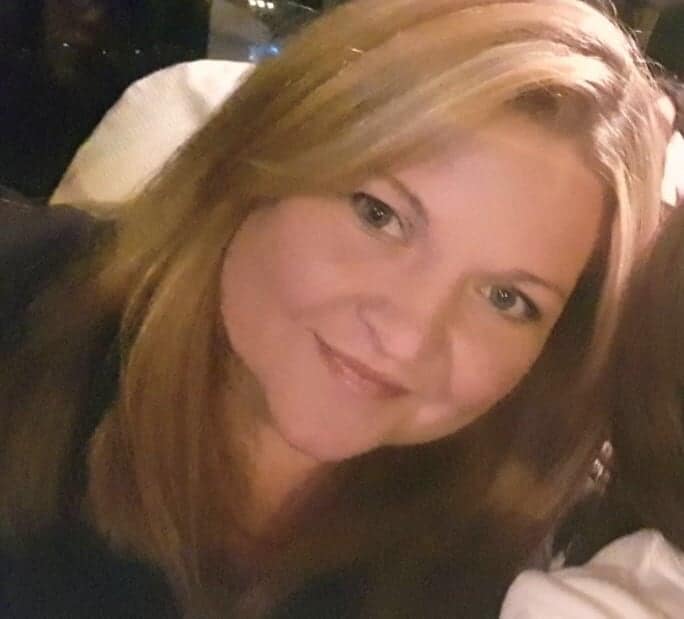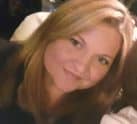
Dana Hutchinson is a medical herbalist and integrative health practitioner at the Wildflower Clinic. In this feature, Dana shares insights in holistic healing and how to integrate herbalism into daily life.
Please share your background and what sparked your interest in holistic healing and the benefits of herbs?
My clinical herbalism background consists of a combination of Western Clinical Herbalism, Traditional Chinese Medicine, and Flower Essence Therapy Work. I am also trained in energetic healing under Reiki and Qi Gong applications. I am also a Registered Herbalist with the American Herbalist Guild and am Board-Certified through the AADP and AANWP. I regularly speak at the International Herbal Symposium, the Good Medicine Confluence, and the AHG Symposium. I am an advanced herbal educator at Herbal Academy, a faculty member at the Colorado School of Clinical Herbalism, and a routine workshop teacher at Apothecary Tinctura. My real interest for Eastern healing modalities began when my mother received a terminal brain cancer diagnosis. I was then diagnosed with a rare autoimmune condition that affect vaginal tissues, called Lichen sclerosis, shortly after. My physical and emotional health battle eventually led me to a Traditional Chinese Medicine healer in Sydney, Australia who opened up my eyes to the incredible transformational powers of herbal medicine and energy healing. After multiple failed interventions from the Western World, I was fascinated with the way that the alternative medicine world viewed the system. I instantly dedicated my life to helping others with autoimmunity, inflammatory conditions, and emotional trauma, embarking on 8 years of combined herbal education, 4 clinical mentorships, 3 clinical practicums, and eventually opened the Wildflower Clinic in Golden, Colorado in 2016.
What is your approach to healing?
My approach to healing others starts with educating the client that they have the power to heal right inside of them and that I am simply a guide to help uncover this power. I believe that the body is resilient and can heal from considerable damages. The ‘phase 1’ of most client cases involves identifying root triggers (exposures like environmental toxins, overuse of medications, oxidative stress, poor diet etc.) and organ systems that have become imbalanced. I do this through interpretation of the client’s tongue, pulse, nails, and skin (TCM Assessment), assessment of comprehensive health history, a Qi (energy) assessment, multiple crafted questionnaires, and birth time meridian theory. The ‘phase 2’ usually includes customized herbal formulations in the form of tinctures, teas, decoctions, capsules, powders, and oils to work at the tissue state of the client’s health presentation. All herbal formulas are custom formulated to the client’s health state, constitution, vital force levels, and goals; and we use over 400 different herbs in our in-client apothecary. The ‘phase 3’ incorporates strategic supplementation, emotional work, energy healing, diet recommendations, and additional educational modules pertaining to the client’s health. We work with clients locally and all over the world. Our mission is to bring individuals back to their innate vital force!
If you were to pick 4 plants essential to your own wellbeing, what would they be?
This is such a hard question! My daily routine usually consists of intaking about 10-15 herbs to maintain my current health state. I would have to say the most pertinent herbs to my unique health and wellbeing would be Jujube Date (Zizyphus jujuba), Astragalus (Astragalus propinquus), Dan Shen (Salvia miltiorrhiza), and Dong Quai (Dang Gui). Jujube is a fantastic herb to warm the interior. As a colder individual, I find that this herb helps to improve circulation, regulate body temperature, and provide a healthy dose of Vitamin C. Astragalus is a wonderful herb for strengthening ‘wei Qi,’ which is our body’s protective shield controlled by the lungs. As a ‘wood’ body type, my wei Qi is a susceptible area and needs to be supported regularly, especially living in Colorado where there is often a cold pathogenic environment. Dan Shen is well indicated for evoking emotional resilience and calming restlessness. Somedays, I feel susceptible to stress (who isn’t these days?), and I find that Dan shen helps to calm my nervous system and eliminate any excess rising heat in my body. Don Quai is my favorite hormonal stability herb. I like to use Dong Quai to support healthy blood flow and balance hormone levels. The root of Dong Quai is one of the most honored and respected herbs that has been used for over 2,000 years. I usually make these into a decoction and drink them in the morning to start my day!
What are some simple ways people can integrate Herbalism into their lives today?
The easiest way to incorporate herbalism into everyday life with minimal herbal education is through culinary herbalism! Think Turmeric, Ginger, Nutmeg, Cinnamon, Thyme, Basil, and Oregano. I encourage clients to make loads of nourishing curries, stir-fry’s, broths, and conjees (cooked rice) while adding in as many kitchen herbs as they have. The majority of kitchen herbs will contain a myriad of nutrients and minerals that are essential for curbing deficiencies in the system. Our food selection today (especially in America) is simply not cutting it from a nutritional standpoint, so adding in culinary spices can help to fill this void. Other ways to incorporate gentle herbalism would be to stick to the ‘nutritive’ class of herbs that are very safe for most individuals. These herbs would include Raspberry, Chamomile, Ginger, Nettles, Peppermint, Alfalfa, Chickweed, Rose, and Hawthorne to name a few. Of course, you will need to check with your qualified herbalist before beginning any herbal routine to ensure it is safe with your medical history. To learn more about the herbalism world, we also offer online courses that can get you started in the world of herbalism!
Do you have any personal routines that you regularly practice and would recommend for self-care and wellness?
I regularly practice Qi Gong most mornings. This is the ancient healing movement that originated from China and helps to open up meridians in the body and allow the free flow of Qi (vital force). I also walk along the river outside our house most mornings and ensure I get early sunlight on my face to ignite my Infradian rhythm, Circadian rhythm, and hormonal body clock. I also start my day with my ‘morning beverage’ that includes a custom formulated herbal tincture of immune supporting herbs, chlorophyll drops to boost red blood cells, vitamin C powder, Lion’s Mane and Turkey Tail herbal extracts, trace minerals, chromium, and Vitamin D3 + K2 drops. These three steps are my true staples in my daily ‘insurance’ plan! Herbalism is a world that encompasses so many alternative practices. I encourage all reading this to embrace nature and get outside as much as possible. Connecting to ‘Dao,’ or our universe, should always be a priority in any healing protocol!


